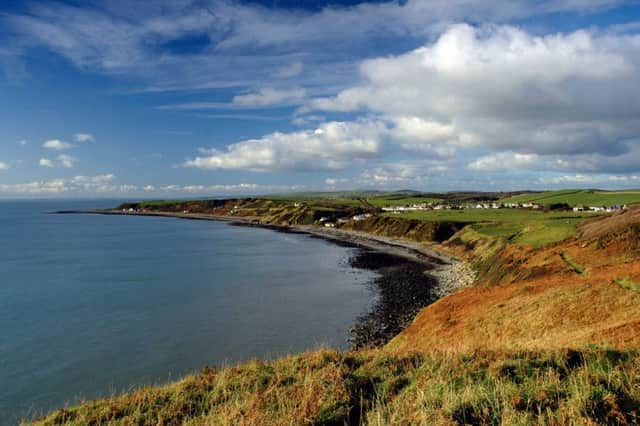Breaking waves the UK’s favourite coastal sound


The sound of the waves at Trwyn Llanbedrog, North Wales, saw off competition from recordings of seagulls, children playing, seals calling, birds nesting, Mersey ferries in the fog and the ghost train ride at Brighton pier to scoop 35 per cent of the votes in the poll.
More than 1,600 people voted in the online poll for one of 10 coastal sounds from around the country, conducted as part of the “sounds of our shores” project by the National Trust, British Library and National Trust for Scotland.
Advertisement
Hide AdAdvertisement
Hide AdPeople are being encouraged to record the noises of seashores across the UK for the three-month project, in order to build up a “sound map” of the country’s coastline that will be added to the British Library’s Sound Archive.
The recordings will also be used to create a new piece of music, inspired by the coasts, by electric music pioneer Martyn Ware of Human League and Heaven 17.
More than 550 sounds from around the UK have been submitted so far, receiving an incredible 50,000 listens - ranging from tidal bells to people singing sea shanties and the sound of a chain ferry.
For the poll, 10 of the most evocative sounds were selected and people were encouraged to vote for their favourite.
Sounds of seagulls and waves from Monreith, Dumfries and Galloway, came second in the poll with 27 per cent of the vote, while River Mersey ferries using their fog horns came third with 10 per cent.
Sheffield-based Adam Long, a photographer who recorded the winning sound at Trwyn Llanbedrog, said: “I’ve been visiting this corner of North Wales several times a year since I was a small boy, and so it feels like a home from home.
“The recording was made at a spot which is a favourite for an evening walk, and was made in spring before the summer crowds.
“The sea was almost mirror calm, and I was pleased to capture the gentle sound of the breaking waves and the fulmars on the cliff behind.”
Advertisement
Hide AdAdvertisement
Hide AdLaura Hughes, National Trust coast and development ranger in North Wales, said that the winning sound was recorded at an “absolutely fantastic spot” on the south coast of the Llyn Peninsula which was loved by both visitors and the local residents.
“For me the sound has a hypnotic quality,” she said.
“The rhythmic nature of the gentle breaking water is lovely and just by listening to it you’re transported to a peaceful evening on the beach with just the sea and the birds for company.”
“There’s something really evocative about the sounds of our coast,” said Cheryl Tipp, curator of wildlife and environment sounds at the British Library.
“They help shape our memories of the coastline and immediately transport us to a particular time or place whenever we hear them.”
Members of the public now have until 21 September to submit their favourite coastal recordings to the sound map.